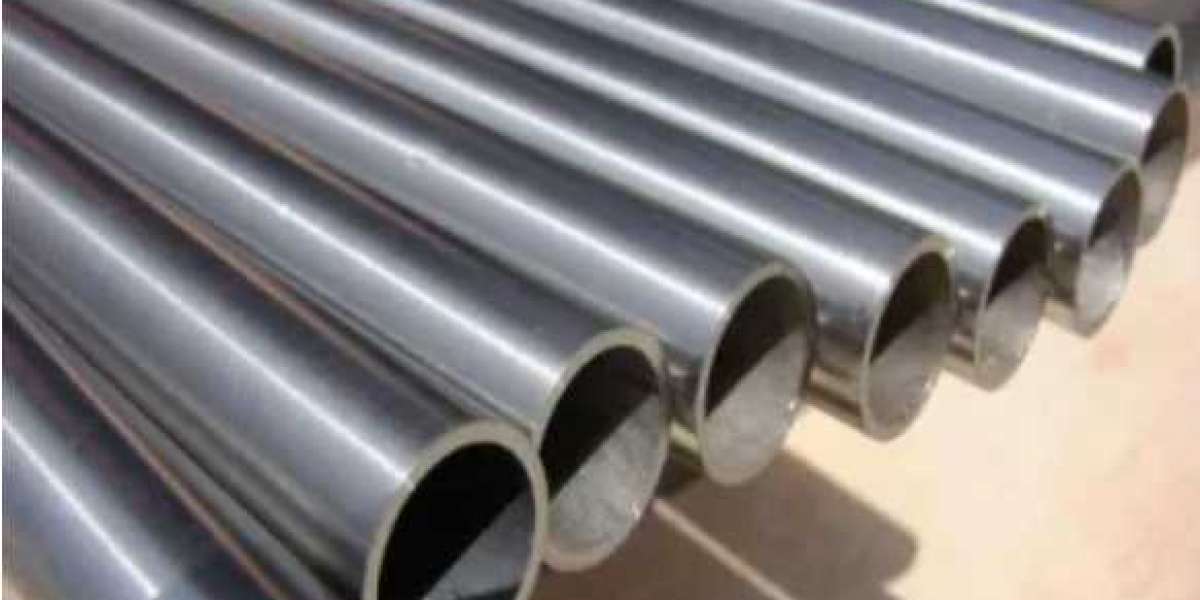Corrosion can be a significant problem in various industries, leading to equipment failure, safety hazards, and expensive repairs and replacements. To combat this issue, corrosion resistant alloys (CRAs) are widely used in industrial applications. These alloys are specifically designed to resist corrosion, making them essential in environments where exposure to corrosive substances is inevitable. In this article, we will explore the industrial applications of corrosion resistant alloys, their properties, and the benefits they offer.
I. Introduction to Corrosion Resistant Alloys
Corrosion resistant alloys are a group of metallic materials that exhibit high resistance to corrosion in specific environments. These alloys are composed of various elements, including metals such as stainless steel, nickel, titanium, and copper, which are combined to enhance their corrosion resistance properties. The selection of the appropriate corrosion resistant alloy depends on the specific corrosive environment and the desired performance characteristics.

II. Properties of Corrosion Resistant Alloys
1.Resistance to Corrosive Environments
The primary property of corrosion resistant alloys is their ability to withstand corrosion in specific environments. These alloys are designed to resist the corrosive effects of chemicals, gases, liquids, or even high temperatures, ensuring the longevity and performance of equipment.
2.High Strength and Durability
Corrosion resistant alloys possess excellent mechanical strength and durability, making them suitable for demanding industrial applications. These alloys can withstand high levels of stress, pressure, and temperature variations without compromising their structural integrity.
3.Heat and Oxidation Resistance
Many corrosion resistant alloys exhibit exceptional heat and oxidation resistance, allowing them to maintain their properties and performance even at elevated temperatures. This property is particularly crucial in industries such as petrochemicals, power generation, and aerospace, where high temperatures are present.
4.Creep Resistance
The ability to resist deformation under prolonged exposure to high temperatures and stress is known as creep resistance. Certain corrosion resistant alloys have excellent creep resistance, making them ideal for applications that require long-term structural stability under high temperature conditions.
5.Low Maintenance and Longevity
Corrosion resistant alloys require minimal maintenance and have a long lifespan, reducing downtime and maintenance costs. The inherent resistance to corrosion allows equipment made from these alloys to operate efficiently and reliably for extended periods, even in harsh environments.
III. Industrial Applications of Corrosion Resistant Alloys
1.Oil and Gas Industry
The oil and gas industry is one of the largest consumers of corrosion resistant alloys. These alloys are used in various applications, including offshore platforms, pipelines, valves, pumps, and heat exchangers. In offshore environments, where exposure to seawater and corrosive gases is prevalent, corrosion resistant alloys such as duplex stainless steel, nickel alloys, and titanium are commonly used to ensure long-term integrity and safety.
2.Chemical Processing
Corrosion resistant alloys are extensively used in chemical processing plants, where exposure to highly corrosive chemicals is inevitable. These alloys are employed in equipment such as reactors, vessels, tanks, and pipes, providing excellent resistance to acids, alkalis, and other aggressive chemicals. Nickel alloys, titanium, and stainless steels are often preferred choices due to their exceptional corrosion resistance properties.
3.Pharmaceutical Industry
In the pharmaceutical industry, corrosion resistant alloys play a crucial role in ensuring product quality, safety, and compliance with strict regulations. These alloys are used in equipment such as storage tanks, reactors, and piping systems, where they withstand the corrosive effects of chemicals used in drug manufacturing processes. Stainless steels, particularly those with high levels of molybdenum and nickel, are commonly employed in pharmaceutical applications.
4.Power Generation
Corrosion resistant alloys are extensively used in power generation facilities, including nuclear power plants, fossil fuel-fired plants, and renewable energy installations. These alloys are employed in critical components such as heat exchangers, boilers, condensers, and turbines, where they withstand the corrosive effects of high temperatures, steam, and chemicals. Nickel-based alloys, stainless steels, and titanium are often used in these applications.
5.Mining and Ore Processing
In the mining and ore processing industry, corrosion resistant alloys are essential for equipment exposed to highly corrosive environments. These alloys are used in applications such as ore storage tanks, chemical leaching vessels, and piping systems. Nickel alloys and stainless steels with high resistance to acidic and alkaline solutions are commonly employed to ensure durability and prevent equipment failure.
6.Food and Beverage Industry
Corrosion resistant alloys find applications in the food and beverage industry, where hygienic and corrosion-resistant equipment is necessary. These alloys are used in food processing equipment, storage tanks, brewing vessels, and dairy processing plants. Stainless steels with high chromium and molybdenum content are widely used in this industry due to their excellent corrosion resistance and ease of cleaning.
7.Marine Industry
The marine industry relies on corrosion resistant alloys to withstand the harsh conditions of saltwater environments. These alloys are used in shipbuilding, offshore platforms, and other marine structureswhere they provide resistance to corrosion, erosion, and biofouling. Duplex stainless steel, super duplex stainless steel, and nickel-based alloys are commonly used in marine applications due to their excellent corrosion resistance properties.

IV. Benefits of Using Corrosion Resistant Alloys
1.Increased Equipment Lifespan
By using corrosion resistant alloys, industries can significantly extend the lifespan of their equipment. These alloys can withstand harsh environments, reducing the need for frequent repairs or replacements. This not only saves costs but also improves overall operational efficiency.
2.Enhanced Safety
Corrosion in industrial equipment can lead to structural failures, leaks, and other safety hazards. By utilizing corrosion resistant alloys, industries can ensure the safety of their personnel and prevent accidents caused by equipment failure.
3.Cost Savings
Investing in corrosion resistant alloys may initially seem more expensive than using traditional materials. However, the long-term cost savings outweigh the initial investment. With reduced maintenance, downtime, and replacement costs, industries can achieve significant savings over time.
4.Improved Performance
Corrosion resistant alloys offer superior performance in demanding industrial environments. Their resistance to corrosion, high temperatures, and mechanical stress ensures reliable and efficient operation of equipment, leading to improved productivity and customer satisfaction.
5.Compliance with Regulations
In industries such as pharmaceuticals and food processing, strict regulations govern the materials used in equipment and processes. Corrosion resistant alloys meet the requirements set by regulatory bodies, ensuring compliance and maintaining product quality and safety.

V. Conclusion
Corrosion resistant alloys play a vital role in various industries, protecting equipment from the damaging effects of corrosion. With their exceptional resistance to corrosive environments, high strength, durability, and other valuable properties, these alloys provide long-lasting solutions for critical applications. From the oil and gas industry to power generation, chemical processing, and beyond, corrosion resistant alloys offer numerous benefits, including increased equipment lifespan, enhanced safety, cost savings, improved performance, and compliance with regulations. As industries continue to evolve and face increasingly challenging environments, the demand for corrosion resistant alloys will only continue to grow.
For more than ten years,Yuesuan Trade has adhered to the mission of building a "trustworthy plate supplier" and focused on providing professional steel services to domestic and foreign customers.
If you are looking for corrosion resistant alloys solution,welcome to ccontatc us.
Email:zhuhao@86yueshan.com







